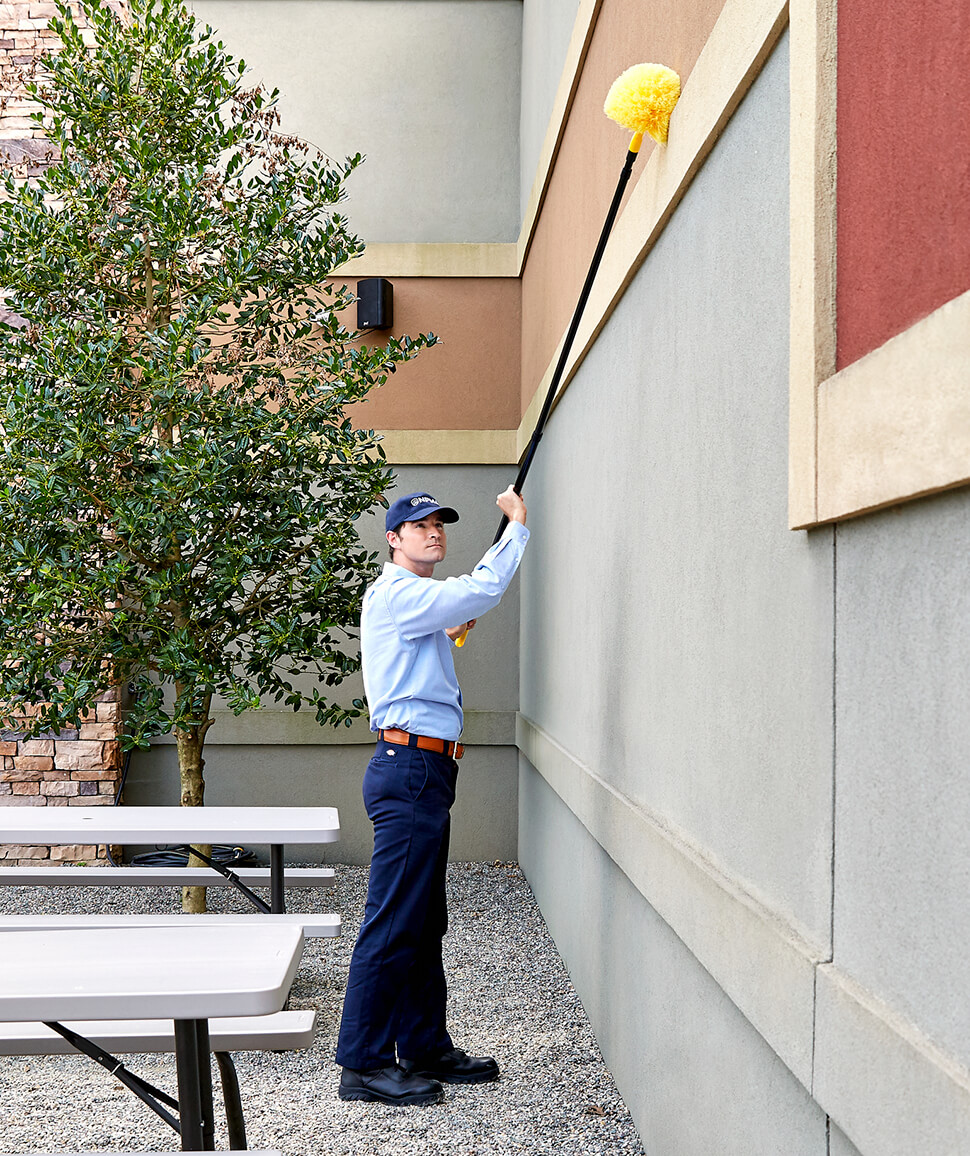
Pest control industry overview
If you are looking for a job opportunity that will allow you to make a meaningful difference in people’s lives while also offering you an exciting and dynamic career path, the pest control industry is the place for you. This field offers more than just a dynamic work environment—it's a chance to genuinely improve quality of life for countless individuals.
One of the biggest misconceptions people may have about working in pest control is that it is solely a bug business. Don’t get us wrong, there are certainly bugs — and lots of them. But make no mistake about it, pest control at its core is a people business.
The work pest professionals do touches millions of lives every day, making them healthier and happier. In fact, public health officials attribute the quality of life we enjoy to three things… better sanitation, better pharmaceuticals and medicine, and better pest control.
Pest control professionals are not only protecting most people’s largest investments – their homes and businesses, but their health as well. In fact, when you consider the world-wide scope of pest-related damage and disease, it’s hard to exaggerate the role of pest control in making the world a healthier, more hospitable place. If this type of work appeals to you, search for pest control job opportunities in your area.
Just Check Out these Staggering Pest Control Industry Facts:
- Termites and other wood-destroying insects cause billions of dollars in damage to houses and other structures in the United States every year.
- Mosquitoes are the deadliest animal in the world, transmitting malaria, dengue fever, West Nile virus, Zika virus, and other serious illnesses.
- Ticks transmit Lyme disease, Rocky Mountain Spotted Fever, and more.
- Cockroaches exacerbate allergies and can trigger asthma attacks. They are also filthy and spread bacteria and contaminate food, as do flies and rats and mice to name a few.
- Rodents contaminate or consume about 20% of the world’s food supply.
- Stinging insects send more than half a million people to Emergency Rooms every year.
Without the pest control industry, restaurants and other public food places couldn’t operate due to unsanitary conditions. Food processors wouldn’t be able to provide us with clean, healthy food. Hospitals would become places where diseases were spread from one person to another instead of cured.
The bottom line is the work of a pest control professional matters. Your contribution as an employee of this industry would matter.

Two Tales of Pest Control
Residential and Commercial Service
Pest control services are needed in all areas of life. Whether it’s in the home, in healthcare facilities, schools, hotels and lodging facilities, food processing plants or restaurants, chances are they have (or should have) a pest control plan in place.
residential
For residential services in the pest control industry, homeowners call in the pros for help for a number of reasons. They may be alarmed after hearing buzzing in the walls. Perhaps they spotted ants marching across the kitchen floor and are bothered by their presence. Maybe their dear family pet is sharing more than just unconditional love and is also sharing fleas. Or, they are dealing with a persistent rodent problem and are concerned about their children. No matter the reason, residential pest control is essential to keeping homes pest-free and families and pets protected from the health threats associated with pests. Some of these services are to treat for an acute and immediate infestation while others are part of ongoing preventative treatments and maintenance plans to protect against future problems.
commercial
Every type of commercial business needs professional pest control, including schools, restaurants, hospitals, apartment complexes, office buildings, food processing plants, public transit, and storage facilities. Many of these locations are also obligated to operate according to stringent regulations and codes set forth by governing bodies and require regular pest control inspections to ensure the facilities remain in compliance and are sanitary and operating properly. A trained technician in the pest control industry will evaluate the property and perform an assessment of all existing issues and plan for potential pest problems, taking into consideration the factors within the facility that are most conducive to attracting pest populations. From there, they’ll work with the management to develop an Integrated Pest Management (IPM) plan tailored to the specific facility.



